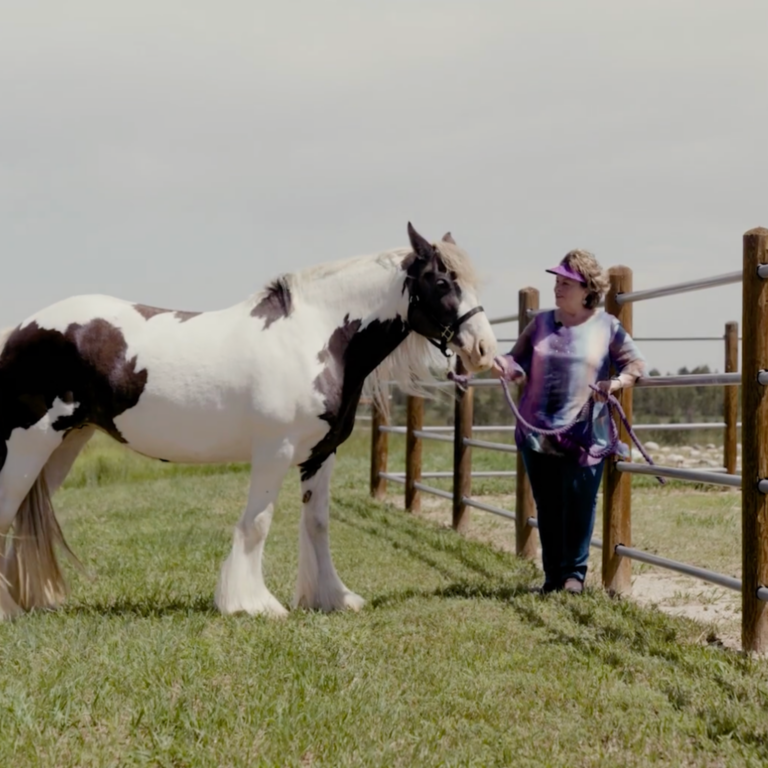There are few quirks more troublesome to manage than bad hauling behaviors. A horse’s bad habits can make you dread every trailer trip you take, keeping you off the trail, out of the show pen, or away from fun rides with friends. And if the problem gets too out of hand, trailer troubles can become safety hazards if a horse won’t trailer to the vet or can’t be evacuated in an emergency.
[RELATED: RESOLVE YOUR HORSE’S TRAILERING ISSUES]
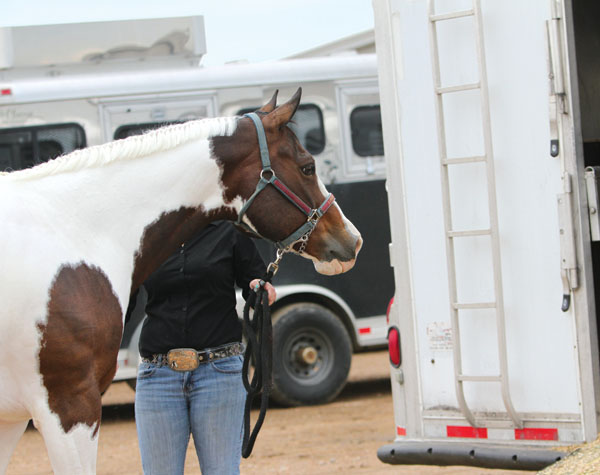
Though trailer troubles manifest as bad horse habits, more often than not they’re actually horse-handling issues. That’s right: Your horse’s annoying trailer troubles are likely your fault. Every time you haul your horse, you teach him how to travel like a pro or a rookie. If you’re guilty of one of the common no-nos listed here, you’re likely to be training a terrible traveler.
[READ MORE: Find Books to Further Your Equine Know-How]
Good Horse, Bad Habits by Heather Smith Thomas
Basic Horse Handling: The Second Part of Horse Basics by Kristina Gregerson
Products we feature have been selected by our editorial staff. If you make a purchase using the links included, we may earn a commission. For more information click here.
As a busy trainer and coach of competitive horses and riders, I’ve seen and managed troublesome horse passengers with a variety of issues. Here are the seven most common hauling errors, and my suggestions for alleviating them so you can haul more safely, with more confidence, and fewer horse troubles.
Towing Him Solo
Your mistake: Hauling your horse alone rather than with a buddy.
Why it’s a problem: If your horse is trailering by himself and he’s one that’s especially prone to attachment, you’re going against all of his natural instincts.
[Horse-Trailer Supplies You’ll Need]
How to fix it: Haul him with another horse. Socialize them well in advance of the trip. This’ll ensure that your horse has a buddy to haul with rather than a stranger (which can cause even more problems). To help them get to know each other, stall or pasture them in nearby pens. It’s much safer for them to work out differences before you hit the road instead of within the confines of your trailer.
A shatterproof mirror is an unconventional solution, but can work if hauling solo is your only option. Your horse could be comforted by his own reflection, thinking he has a neighbor. But, be sure to get him accustomed to your mirror before the trip so he doesn’t spook at it on the road. Start by placing a mirror in his stall. He may be cautious of it at first, but as he grows accustomed to his own reflection, he’ll soon become attached to it. Position it in the trailer near the top of the divider by his head, so he can see his eye and feel as if another horse is loaded beside him.
Hauling Like Andretti
Your mistake: Driving too aggressively with your trailer.
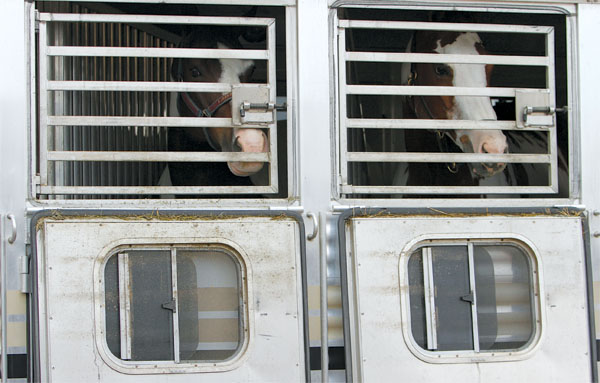
Why it’s a problem: Top-of-the-line brakes, trailer setups, and improved trailer and truck technology make it easier to drive more aggressively than you should. If your horse is uncomfortable going down the road because he can’t easily stand when you stop too hard, take too-tight corners, or weave in and out of traffic, he’ll dread travel and will balk when asked to load. And even if he does load, he’ll lean on dividers or kick the wall or door to brace.
How to fix it: Be cognizant that every bump and dip you feel in the truck is magnified in the trailer. Give yourself extra space between cars so you have plenty of room to stop. Approach corners slowly and widely for nice, easy turns that won’t toss your horse back and forth. Slow down at bumps, grates, railroad tracks, and other obstructions to lessen the impact. To understand how your horse feels, hop in the trailer or tack room yourself and have a friend haul you in an open, untrafficked area.
Expecting Perfection Too Soon
Your Mistake: Assuming your young prospect or tricky hauler will load like a champ every time.
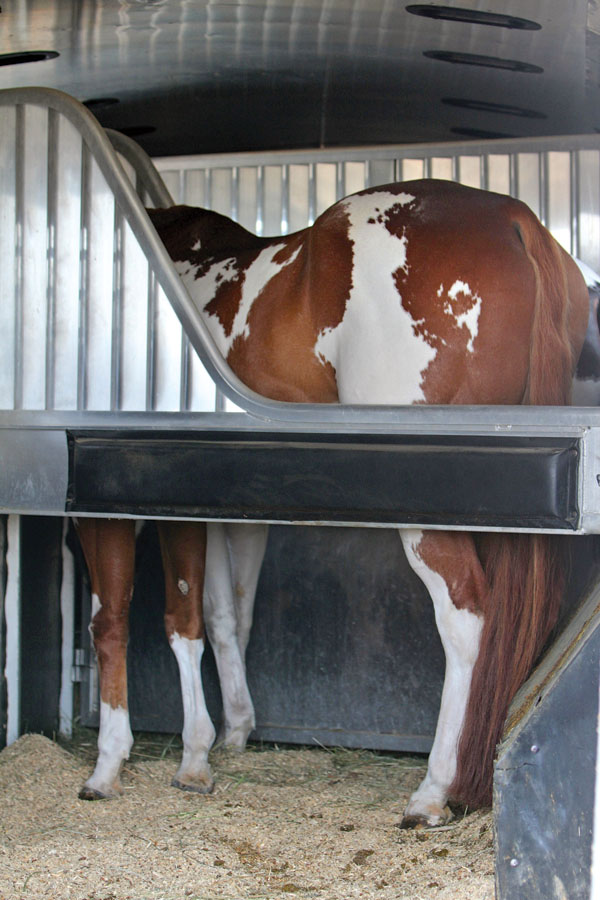
Why it’s a problem: A horse that doesn’t load or unload well either lacks experience, or those experiences have been traumatic. If you can’t get him in and out of the trailer easily during an emergency or when you’re pressed for time, the situation can escalate quickly.
How to fix it: Load him and let him eat his grain or a treat while in the trailer. This’ll give him a positive association with the space.
Also, take him for short, quiet rides to build his confidence. Even a trip to town to grab ice cream is a good excuse to load him up and take him along. Drive leisurely and avoid routes with multiple stop signs or traffic lights. A short, stress-free jaunt will keep your young horse from resenting the trailer and will remedy negative associations your horse might’ve developed.
[BE PREPARED: Trailer Emergency Equipment]
Cramped Quarters
Your mistake: Trailering your horse in a cramped, uncomfortable space.
Why it’s a problem: Limited space will give your horse anxiety and make him feel claustrophobic. He may kick, paw, or lean against dividers to show you that he’s uncomfortable. These behaviors might result in trailer damage, a leg injury to your horse or his trailermate, or bad hauling habits.
How to fix it: Strategically place larger horses in the back, where there’s typically more room. When stopped at a rest stop or gas station during a long haul, open windows completely to allow him to stick his head out for fresh air and to feel less restricted. But, never do this unattended, nor on the road! It’s not unheard of for a horse that doesn’t haul well to get stressed and make poor decisions, like try to crawl through the open window. In transit, his head out the window could easily get hit by a passing vehicle or flying roadside debris, which could injure or scare him. (Read “Trailering Safely” at HorseandRider.com for stories of real-life horse-trailering mishaps.)
If your horse is too large for your current trailer, this may mean you need to invest in a more spacious model or consider a stock trailer (or one without dividers). Borrowing from a friend is a more cost-effective option, so long as you have an agreement in place to cover expected care and potential damages.
Failing to Prepare for Lost Appetite or Thirst
Your mistake: Overlooking these elements of horse health before and after the trip.
Why it’s a problem: A horse that has difficulty eating or drinking on the road may be stressed, an anxious traveler, or in pain. A dehydrated horse can colic, be lethargic, have an electrolyte imbalance, and simply not be at his best when you reach your destination. If a horse is stressed on the road, he could develop ulcers, causing pain and performance issues.
How to fix it: In the days prior to your outing, when he’s relaxed at home, administer a dose of electrolytes to your horse. This prepares him to have a healthy electrolyte balance before you leave. Avoid giving him electrolytes the day of the trip, in case he doesn’t drink enough water on the road. Providing extra electrolytes without proper hydration can cause your horse to have too-high levels of potassium, sodium, or magnesium. This can sometimes do more harm than if he hadn’t had any supplements.
Be consistent with your horse’s feeding regimen while you travel. If he’s typically stalled, feed him at his regular intervals. If he’s accustomed to grazing, provide a full bag of free-choice hay. Be alert to his urine and fecal passage, and remove hay if he isn’t regular, and especially if he’s not drinking enough water.
Administer medication prior to the trip if he’s prone to ulcers or gastrointestinal discomfort. (See “Pack Like a Pro” on page 63 for a trailer-packing checklist.) These can go a long way to eliminate pain. If he hurts, he’s more likely to display negative behavior, such as kicking, biting, or pawing.
Hazardous Parking
Your mistake: Unloading your horse in an unsafe location or on difficult terrain.
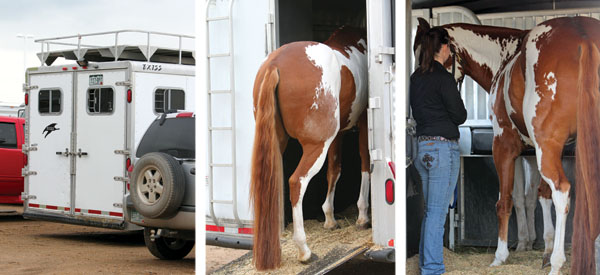
Why it’s a problem: If your trailer doesn’t have a ramp, then parking on concrete, loose ground, or a downward-sloping area will just make your horse’s step off the trailer more challenging—which also can make him reluctant to re-enter the trailer when it’s time to go home. Cars or other trucks and trailers near the door are other safety hazards. Your horse could easily swing or step into them as he unloads, spooking and possibly injuring himself.
How to fix it: Park with the trailer door on an upward-sloping incline or back against a very low-grade hill to make unloading less dramatic. As soon as his back feet are firmly planted on the ground, he’ll realize he’s on a stable surface and will more willingly finish unloading. Note: Unless you’re in an emergency situation and can’t get him out another way, don’t turn him around to unload head first. This is a hazard to your safety. An anxious horse could easily run over the top of you if you turn him toward you.
Rushing Him In
Your mistake: You try to rush a new or difficult loader into the trailer without figuring out why he won’t load.
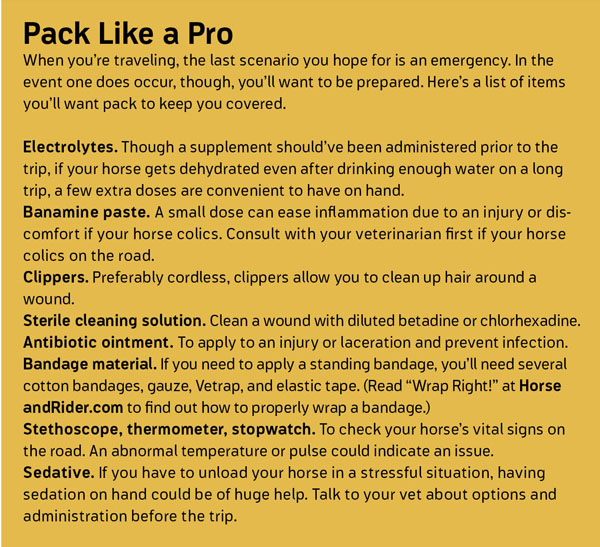
Why it’s a problem: In the event of an emergency, you need to be able to load your horse easily. When you approach loading without patience and rush your horse into the trailer each time you go on a trip, you only make him more anxious. Aggressive urges from behind will initiate his fight-or-flight response and he’ll be even more resistant.
How to fix it: Rather than chase your horse into the trailer, use this drill to make the outside of the trailer more uncomfortable than the inside. First, longe him on your lead line just outside, but not in danger of hitting, the opening of your trailer. When he’s relaxed, licking his lips and dropping his head, try to load him. If he goes in willingly, allow him to rest inside. The break is his treat. If he still balks, longe him again, and repeat the process. But, never pursue him from behind. Instinct will tell him to avoid the trailer if he feels that the predator (you) will follow him in if he complies.
If your horse still resists loading, even after you’ve ruled out other issues and have made the trailer a comfortable space, the issue is likely anxiety over your destination. If every time you leave home he’s worked until he’s exhausted, then he’ll start to anticipate the discomfort and avoid the trailer. To keep him from dreading the work to come after the trailer ride, establish more positive connections with the trailer. Mix in fun outings that he’ll enjoy in addition to training sessions.
Karen Banister and her husband, Marc, started White Harvest Farms in Brighton, Colorado, in 1986. It operates as a breeding, training, boarding, and lesson facility. They coach riders, and also breed and train both APHA and AQHA horses for national-level competition.


